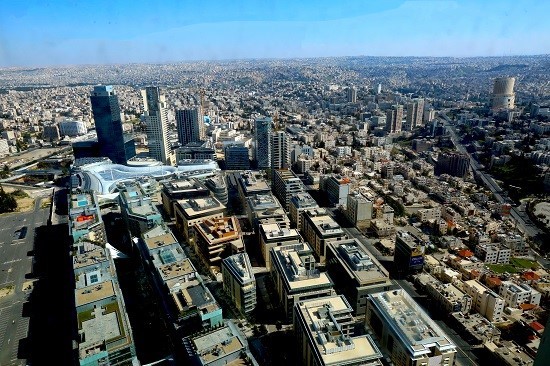The devastating impact of COVID-19
has underscored governments' lack of preparedness. It is also clear that the
pandemic is unlikely to be the last crisis countries will face, as we witness increasingly
frequent extreme climate change events, high financial vulnerabilities, and
rising levels of conflict in some countries with disrupted supply chains.
اضافة اعلان
 A general photo of Amman. (File photo: Ameer Khalifeh/Jordan News)
A general photo of Amman. (File photo: Ameer Khalifeh/Jordan News)
Investing in preparedness rather
than waiting for the next crisis to hit can help prevent human and economic
losses. In Jordan's case, mega projects will help increase resilience, improve
the country's response capability, and enable all sectors to reap benefits.
For rapid, resilient recovery, Jordan
needs to implement reforms to enable an investment-driven growth model. These
reforms should prioritize investment and create a business environment to promote
programs and financing in the sectors required.
Jordan should use recovery
efforts to tackle structural challenges in the economy, and give priority to economic
sectors like tourism, agriculture, IT, transportation, and industry.
In collaboration with private
sector investors (via PPPs), the government has launched a school project and
is preparing for other infrastructure projects worth JD260 million. In
addition, the Amman-Aqaba Water Desalination and Conveyance Project, worth JD2 billion,
will deliver 300 million cubic meters of water to scale up the water sector and
ensure a sustainable path for water supply, critical to growth and macro-economic
stability.
It is necessary to focus on the efficiency
and effectiveness of government institutions, promote personal development to
encourage excellence in performance, embrace the concept of public service,
uphold a professional code of conduct, and instill the principles of respect
for the rule of law, of merit, and of equal opportunities.
Decisive government actions are
needed to determine the private sector to encourage Jordanian labor
participation and training.
Improving the business environment,
governance, and competition is crucial to engendering strong, durable, and
inclusive growth, including large infrastructure projects to address priority
needs.
Jordan should prepare the private
sector, including contractors, services providers, and finance institutions,
for the upcoming projects. The telecommunication sector will create JD700
million-worth of direct opportunities to upgrade the network for 5G and other needs
associated with emerging technologies.
These actions will promote entrepreneurship
and competitiveness, and streamline investment efforts. They will significantly
enhance the country's ability to retain and attract new investments in
different fields, like transportation projects, the national railway, and Aqaba
port, which will inject more than JD3 billion in the market within five years.
Furthermore, downstream projects will
be witnessed, like the fourth expansion of the refinery, expansion of potash
and phosphate industries, building new petrochemical complexes, in addition to
the hydrogen production project that can make a revolution in the climate
change, and the future of energy and technology.
Besides the petrochemical projects,
the government announced upcoming concessions for copper and gold mines, along
with rare elements and phosphate explorations in different locations; these
investments can unlock multi-billion-dinar opportunities and will need a massive
number of employees.
Jordan needs to bolster the
legislative and institutional environment, lower production costs, and digitize
its services. The government needs to be proactive to accelerate the PPPs infrastructure
projects, which are challenging to deal with in terms of time because of long-term
contractual commitments made by counterparties, including third-party lenders
and investors. The strategy should involve a government investment management
company (GIMC) to create an enabling environment for private-sector
participation and de-risk transactions to allow investments to be the
mainstream and generate sustainable economic growth.
The writer is a board member of a Jordanian public-sector
government investment management company since 2019. He is currently the Business
Development Director at Edgo, he worked with Petrofac, an international EPC
company in various positions and countries in the Middle East, North Africa
& UK region. Alayani holds a BSc in Mechanical Engineering (2006) and
an MBA from the University of Aberdeen, UK (2021).
Read more Opinion and Analysis







